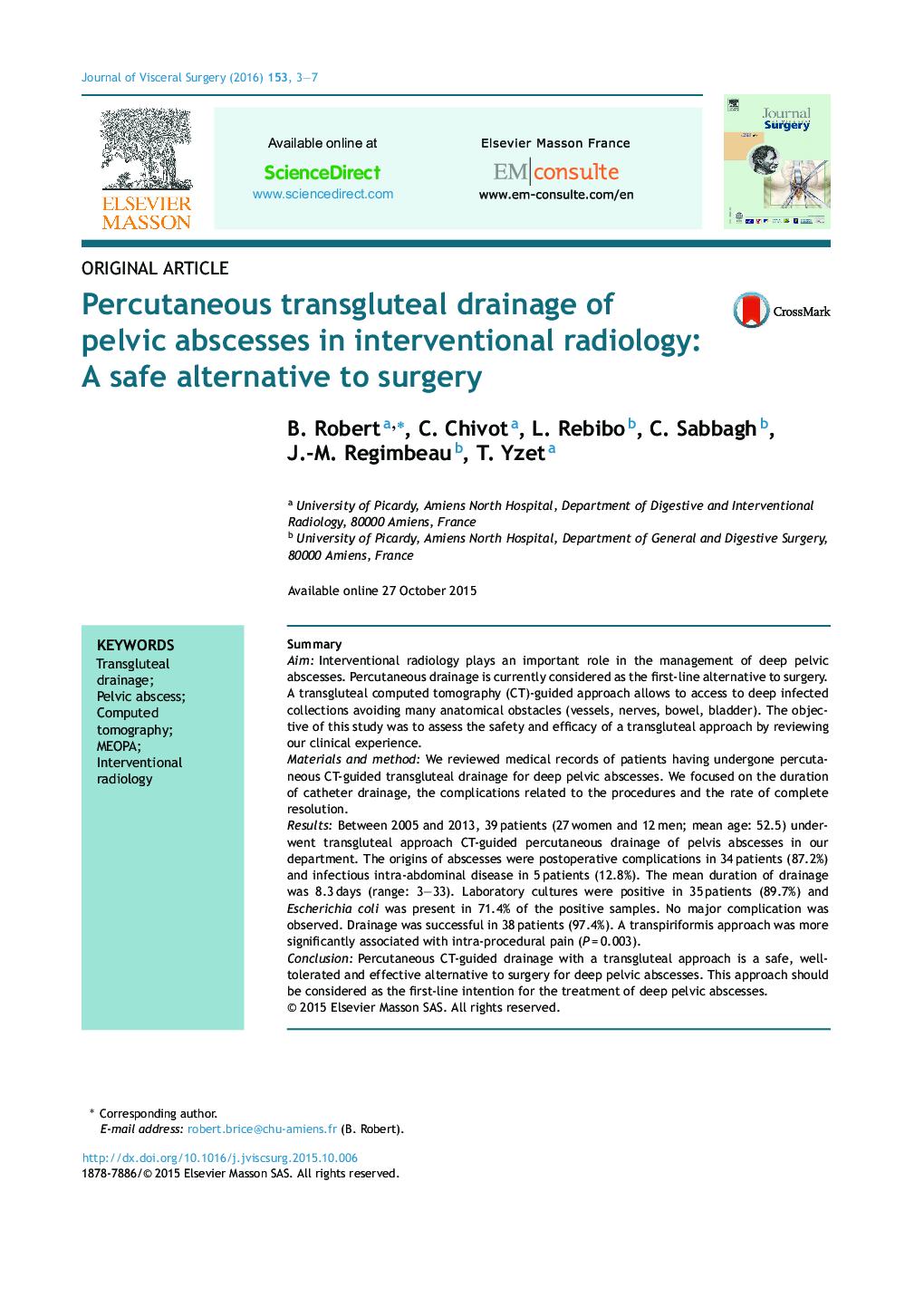| Article ID | Journal | Published Year | Pages | File Type |
|---|---|---|---|---|
| 3315726 | Journal of Visceral Surgery | 2016 | 5 Pages |
SummaryAimInterventional radiology plays an important role in the management of deep pelvic abscesses. Percutaneous drainage is currently considered as the first-line alternative to surgery. A transgluteal computed tomography (CT)-guided approach allows to access to deep infected collections avoiding many anatomical obstacles (vessels, nerves, bowel, bladder). The objective of this study was to assess the safety and efficacy of a transgluteal approach by reviewing our clinical experience.Materials and methodWe reviewed medical records of patients having undergone percutaneous CT-guided transgluteal drainage for deep pelvic abscesses. We focused on the duration of catheter drainage, the complications related to the procedures and the rate of complete resolution.ResultsBetween 2005 and 2013, 39 patients (27 women and 12 men; mean age: 52.5) underwent transgluteal approach CT-guided percutaneous drainage of pelvis abscesses in our department. The origins of abscesses were postoperative complications in 34 patients (87.2%) and infectious intra-abdominal disease in 5 patients (12.8%). The mean duration of drainage was 8.3 days (range: 3–33). Laboratory cultures were positive in 35 patients (89.7%) and Escherichia coli was present in 71.4% of the positive samples. No major complication was observed. Drainage was successful in 38 patients (97.4%). A transpiriformis approach was more significantly associated with intra-procedural pain (P = 0.003).ConclusionPercutaneous CT-guided drainage with a transgluteal approach is a safe, well-tolerated and effective alternative to surgery for deep pelvic abscesses. This approach should be considered as the first-line intention for the treatment of deep pelvic abscesses.
